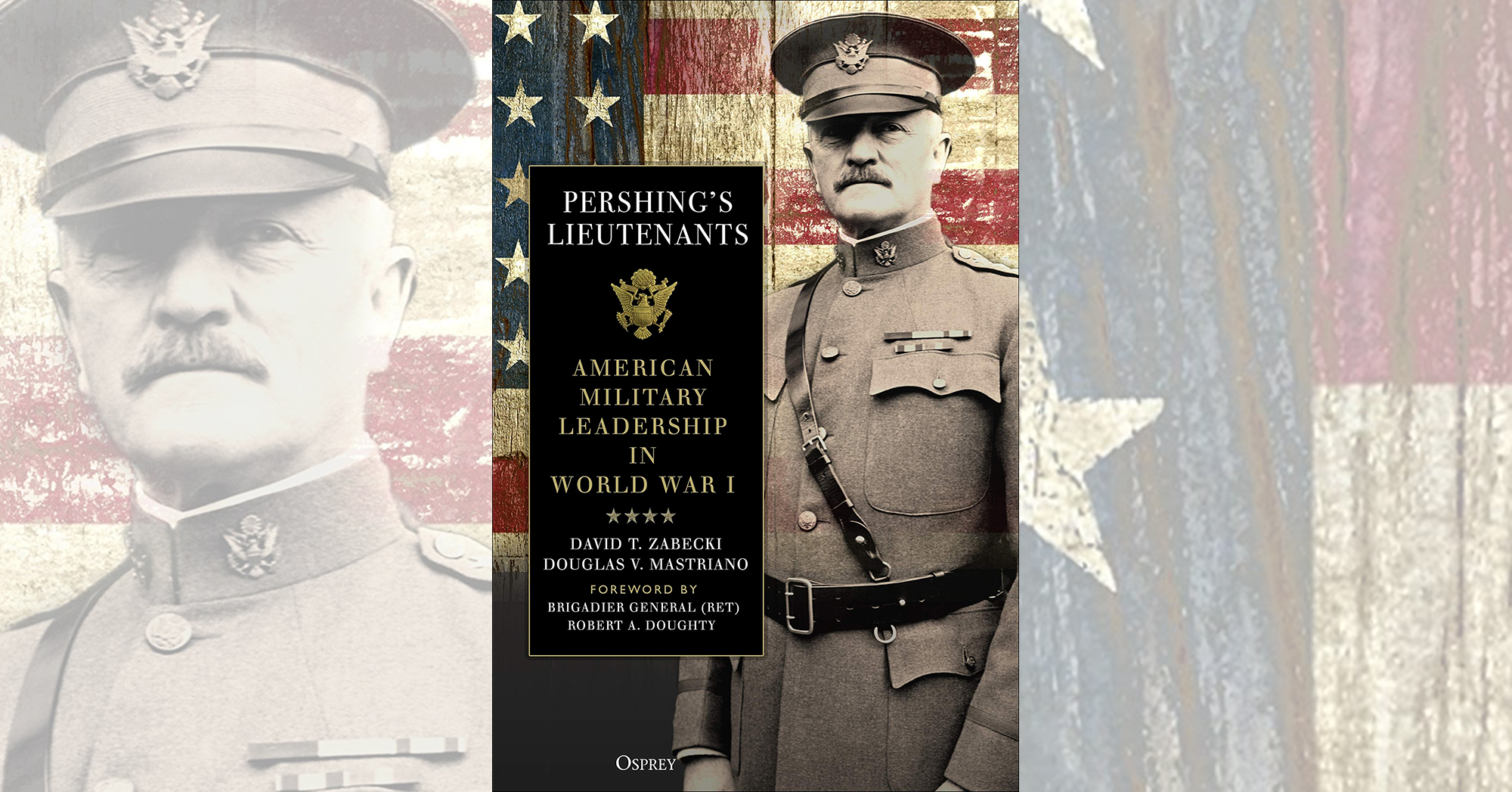Pershing’s Lieutenants: American Military Leadership in World War I, edited by David T. Zabecki and Douglas V. Mastriano, Osprey Publishing, New York, 2020, $35
The Army with which the United States entered World War I was not the U.S. Army of today, nor even the Army with which the country went to war in 1941. In May 1917 the Army commanded by Gen. John J. Pershing had only 210,000 troops and ranked 17th in the world, behind that of Portugal. Yet by war’s end in November 1918 the Army had grown to more than 3.7 million men, some 2 million of whom Pershing had led to Allied victory in a war more than 3,000 miles from home—an unprecedented historic feat.
Needless to say, the general could not have done it without some extraordinarily talented help. Pershing’s Lieutenants recounts the achievements and occasional failures of key officers who helped create and lead the AEF, many of whose stories have hitherto been overshadowed by that of their celebrated commander. Those officers included no fewer than five future chiefs of staff of the Army and two Marine Corps commandants. Pershing’s Lieutenants also profiles a number of his senior staff officers, as well as commanders of individual armies, corps and divisions, with a chapter devoted to each.
The book includes a number of “regimental” and “specialist officers” of lesser rank who rose to prominence during the war or in later careers. Among them are Billy Mitchell (chief of the U.S. Army Air Service), George Patton (a significant leader in Pershing’s tank corps) and William J. “Wild Bill” Donovan (commander of the 165th Infantry Regiment, who later established the Office of Strategic Services, the intelligence organization that became the Central Intelligence Agency). Other standouts include Lt. Col. Theodore Roosevelt Jr. (the president’s son, who became a noted general in World War II) and artillery Capt. Harry S. Truman (future 33rd president of the United States). Tapping the talents of many experts in the field, Pershing’s Lieutenants is a valuable resource for those interested in the U.S. contribution to victory in World War I.





